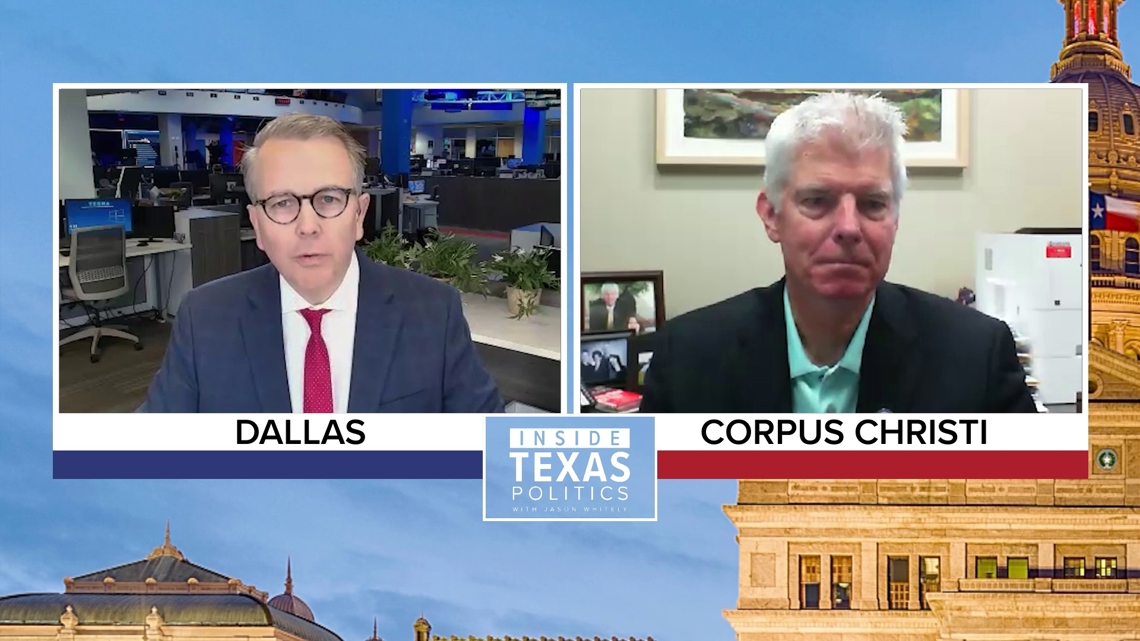The project would have helped the city’s water problem, but it suffered from significant cost overruns and lengthy delays.
CORPUS CHRISTI, Texas — To say that Corpus Christi City Council Member Mark Scott is disappointed would be a massive understatement.
“We were weeks away from what I call solving the riddle,” Scott said on Inside Texas Politics.
That riddle is a years-long water crisis in Corpus Christi that has pushed the city to the brink. City leaders say the area could be in an emergency situation by December 2026, leading to a 25% reduction of water use by its largest industrial users. And some of those companies, including Flint Hills Resources, a Koch Industries subsidiary, say that would force them to shut down at least some operations.
Corpus Christi has suffered through a seven-year drought and is currently under stage 3 water restrictions, which means no lawn watering is allowed, swimming pools must have covers when not in use and residents can only use buckets to wash their cars at home, and they can only do that on certain days.
The solution, as councilmember Scott sees it, was a $1.2 billion desalination plant.
But after a lengthy and contentious meeting with several arrests, city council voted to walk away from the project after ten years of work.
Scott says the city has already borrowed and spent $230 million on the project. And he added that it will cost local taxpayers $8 a month for the next 10 years, and they have nothing to show for it, not one extra drop of water.
“Incidentally, if we’d have finished the project, their rates would go up $11. So, it’s $8 to do nothing, and then $11 to have 30 million gallons a day,” Scott argued.
Critics of the project cited the skyrocketing costs, which went from initial estimates of $160 million in 2019 to $1.2 billion in August 2025.
They were also concerned about the potential environmental consequences caused by both the plant and any incoming large industry attracted to the area because of it.
Scott says between the water crisis and the fact the city has yet to build the desalination plant, up to $16 billion in new economic development projects have now moved on from the city.
“This is really, at its core, a battle between industry, pro-growth supporters and a group of environmentalists that don’t want to see the industrial community grow,” the council member argued. “It puts a big black eye on future desalination projects for the whole state of Texas.”
The city is now considering other water projects. Scott says there is a chance the city council will revisit the issue in a week or two and considers alternate bids.
But that, of course, would lead to something Corpus Christi residents are used to: millions more in expenses and more lengthy delays while the city continues to lose water.

